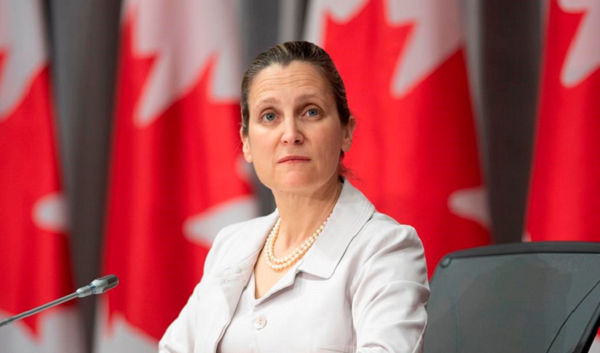Capital gains tax changes will limit opportunities, make Canada a less competitive and innovative nation, business groups tell Freeland
Forging ahead with increasing Canada’s capital gains inclusion rate “sows division,” and is a “shortsighted” way to improve the deficit, business groups are warning Finance Minister Chrystia Freeland.
In a new letter sent to Canada’s chief financial steward and deputy prime minister, six of the country’s largest industry organizations are sounding off about the concerns they have that the policy change will stifle economic growth and come at the expense of future generations’ prosperity.
“Put simply, this measure will limit opportunities for all generations and make Canada a less competitive, and less innovative nation,” reads the
“Whether through the diminishing (of) the creation of new companies and jobs, reducing the availability of medical practitioners, eroding hard-earned pension returns … or threatening the retirement plans of millions of Canadians who pinned their plans on the proceeds of selling a family cottage or a small business … the effects will ripple from coast to coast to coast.”
The Canadian Chamber of Commerce, the Canadian Federation for Independent Business, Canadian Manufacturers and Exporters, the Canadian Venture Capital and Private Equity Association, the Canadian Franchise Association and the Canadian Canola Growers Association are signatories.
The 2024 federal budget included a proposal to increase the inclusion rate on capital gains from 50 per cent to 67 per cent for individuals earning more than $250,000 in capital gains in a year, and for all corporations and trusts.
Since releasing the budget, Freeland and Prime Minister Justin Trudeau have faced pushback about the policy from doctors worried about their savings, and start-up-minded entrepreneurs.
The Liberals have repeatedly defended their plan to target Canada’s highest earners, and in the process rake in billions in additional revenue, as a fair way to help offset other major investments in housing and Canada’s social
safety net.
While the government has vowed this would impact approximately 12 per cent of Canada’s corporations and Canadians with an average income of $1.42 million, critics have warned its impacts could be more widely felt by anyone making $250,000 or more in profit on the sale of assets such as secondary or rental properties.
“The assertion that the increase of the inclusion rate to 67 per cent will only affect a small percentage of the wealthiest Canadians is misleading. In fact, one in five Canadians will be directly impacted over the next ten years and the effects of this tax hike will be borne by all Canadians, directly or indirectly,” the letter reads.
Last week, Freeland reaffirmed her intention to advance this tax change, opting to leave the needed law reforms out of the omnibus budget implementation bill. Instead, she is planning to table separate legislation focused on this measure that’ll move through Parliament on its own timeline, forcing the opposition parties to take a clear stance.
“We are very committed to the capital gains measures,” Freeland said. “Our view is it is absolutely fair to ask those in our country, who are at the very top, to contribute a little bit more.”
According to Finance Canada, in 2021 only around five per cent of Canadians under 30 had any capital gains at all. And, next year 28.5 million Canadians are not expected to have any capital gains income, while three million are expected to earn capital gains below the $250,000 annual threshold.
While Freeland has yet to unveil the legislation, this tax change is expected to apply to capital gains realized on or after June 25, 2024.
The industry organizations are calling on the federal government to scrap the “ill-advised inclusion rate increase” before it comes into effect. They instead want an independent review of Canada’s tax system as a whole.
“Under successive governments, our tax system has become a complicated web of carve-outs and caveats. Our country must end its reliance on tax-and-spend politics, which is undermining innovation and growth to the detriment of both today’s Canadians and future generations,” the letter reads.
“As Canada’s economy grows, so too does our tax base – all without the need for tax increases that will hurt Canadians and limit our collective potential… There is a better way. We’re prepared to roll up our sleeves and work with you to help Canada get there.”
This article was first reported by CTV News
















